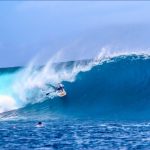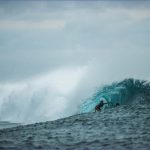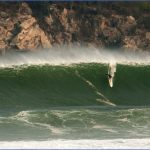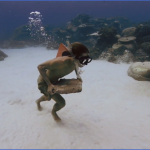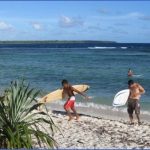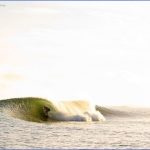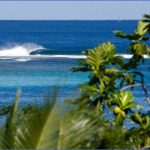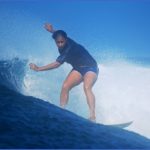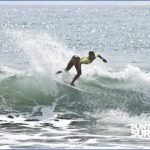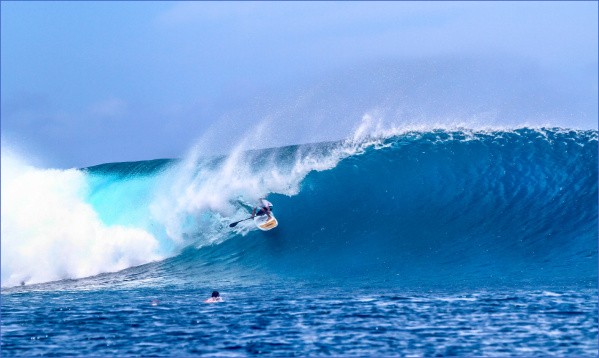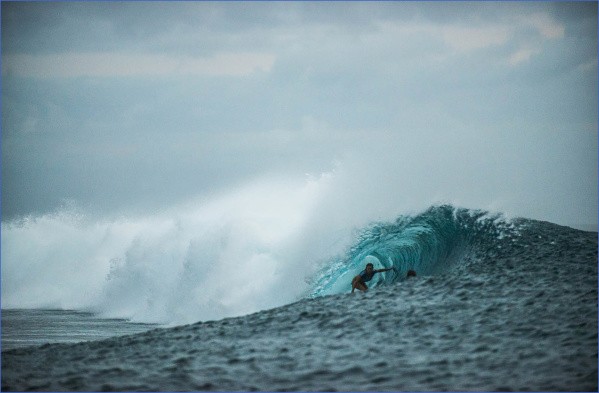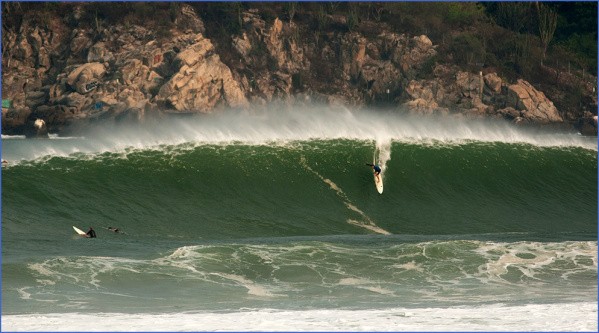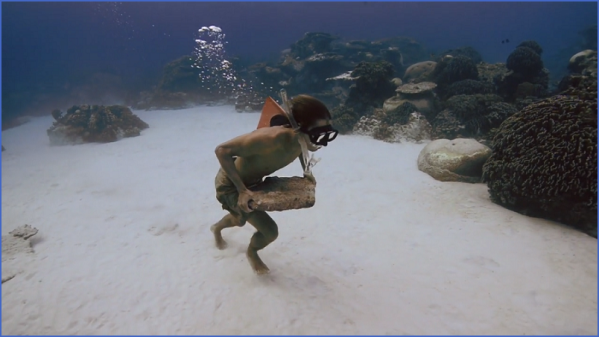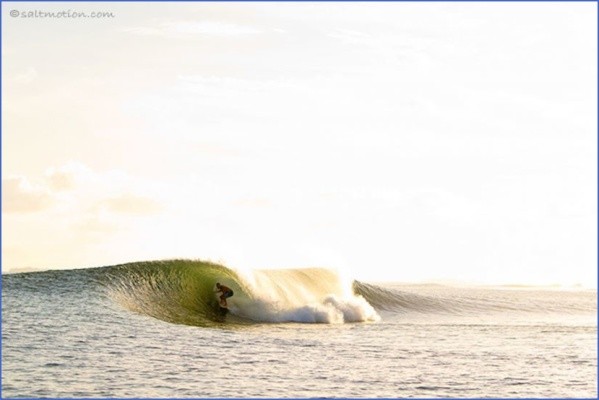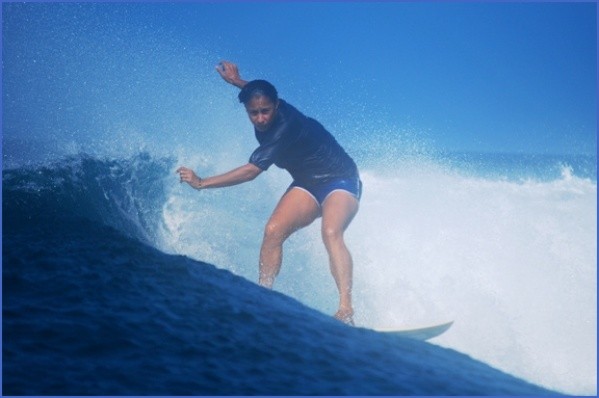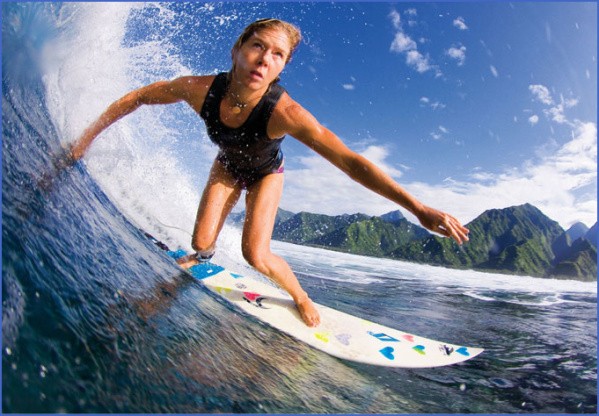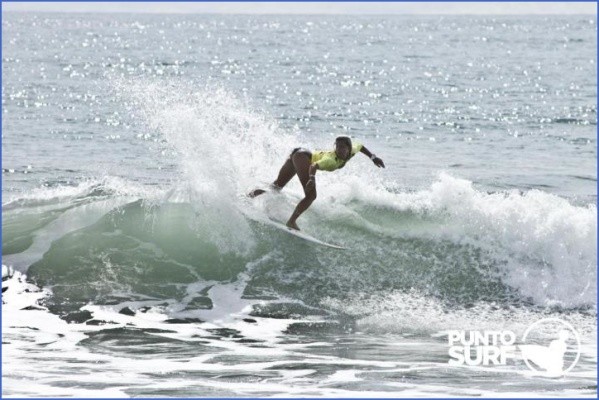As the curtain of rain envelops us, a ray of golden morning light sneaks in through a gap in the clouds, illuminating a fluffy white layer of droplets on the sea surface being blown around madly. The rain pelts the ocean with such force that each raindrop shatters into a million scattering fragments. The warm golden sunbeam lights up every flying bead of water I’ve never seen anything like it.
I stand breathless at the wheel, hypnotized by this ferociously beautiful face of the sea. As Swell plows through the magical scene, my fear transforms into gratitude. I’m soaked to the bone and my thighs burn from leaning into the sharp heel of the boat, but a rush of vitality surges through me. I vow to cease my mental protests and embrace the opportunity to expand my seafaring knowledge. No matter what becomes of the Spaniard and me, I’m pushing past my comfort zone toward new knowledge, and beholding this marvelous expression of nature is already a precious reward.
My outlook may be improved, but the second day and night hold much of the same: frequent sail changes, squall dodging, wetness, and nausea. By the third morning, there’s only thirty more miles to go, but each one is a fight. We make headway only by constantly tacking according to minor shifts in the wind direction. By 11 am I have gone only eight miles. Fatigued by the constant maneuvering, I see a break in the squalls and go below to nurse my cuts and have a short rest.
I’m not sure how much time has passed when an abrupt pitch to starboard and a surge of speed awaken me. I launch out of my berth, but it’s too late. The sea rises over the starboard rail as the gust pins us over. I release the jib sheet in a panic. The relentless flapping of the sail from the fierce winds tears three long horizontal rips in the headsail before I manage to haul it in.
I stare up at the tails of the shredded sail that wave frantically like little white surrender flags. I want to surrender too. I moan aloud at the thought of spending another soggy, sleepless night at sea. “Bullshit!” I holler at the wind.
But I don’t have time for a tantrum. Each second that passes without making headway lessens my chances of arrival before dark. I duck below and wrestle out my spare headsail, then haul it up to the foredeck, install the Solent stay, and clip each of the the sail’s hanks onto the cable.
By the time it catches the wind, I’ve lost an hour of daylight. And when I look at our speed with the little jib set, my heart sinks: three and a half knots. I add the power of the engine and stay at the wheel full-time, steering and tacking strategically with each squall to use the stronger winds to gain speed.
As the sun checks out, we’ve still got a few miles to go. Swell and Octobasse criss-cross through yet another menacing squall as we finally approach the pass. Without much light, it will be a nerve-wracking entry through the unfamiliar slit in the reef, but Gaspar has been here before, and I trust he can guide us in. I drop the little jib, then fall in line behind him, but he suddenly makes a drastic course change. I hear his Spanish accent break in over the radio.
“Swellito, I have a problem con mi motor (with my motor). Go ahead without me. The current es demasiadofuerte (is too strong) to enter by sail.”
The outgoing tide is pulling water out of the pass at more than four knots, so without auxiliary power from his motor, Gaspar will have to wait for slack tide. That leaves me to traverse the pass and navigate to the closest protected anchorage alone in the coming darkness.
Surfing in the South Pacific Photo Gallery
Love Stinks
“Ussy! Li-i-i-i-i-ssy! iLlevantate!” (Get up!) I hear Gaspar’s voice outside the next morning and open my eyes, but I don’t want to move.
Both boats are safely at anchor behind the submerged spit of reef at the south end of the lagoon. All senses on high, I managed to run the pass, dodge pearl lines and coral heads, and make it to the barely discernable anchorage with only a glow on the western horizon to guide me. The bedraggled Octobasse showed up five hours later.
I crawl out of the cabin to see the Spaniard swimming beside Swell.
“You are one tough little rider,” he says. “You impress me on this passage.”
“Gracias, but my sail, it’s badly ripped.”
“You like sewing?” he asks with a wink. I shrug my shoulders.
“Desayuno?” (Breakfast?) I ask.
The weather gets worse before it gets better; gusts and squalls violently whip through the anchorage. I catch up on sleep, talk long hours with Gaspar, and use a Sharpie to
mark the exact points of Swell’s leaks so I can try to fix them when the weather clears. One final raging gale blows over the atoll at more than forty knots, and then stillness.
I’m happy to see the sun the following morning; it’s time to do some exploring. Gaspar and I freedive, wander through the village, share meals, and hang out with Josh and the wonderful crew at the pearl farm. We both try to rekindle the feeling we’d shared in Galapagos, especially with Christmas only a few days away, but my distrust and sensitivity continue to get in the way. I wish he would just apologize and try to see things my way. When he talks about the other girl, it plays on my insecurities, as do his criticisms of my character. Photos of beautiful women from magazines are pasted all over his walls, as well as pictures of him with his old girlfriends. One evening while I knead pizza dough, I ask about them.
“What’s with all the photos of women?”
“I like them. Estan hermosas. (They are beautiful.) Who cares, Lissy? Is just photos. You are real,” he replies. “Don’t you think you’re beautiful too?” I don’t know how to answer. His question shines a light directly on a sore spot.
“Not as beautiful as them,” I muster. I hate him for knowing exactly how to expose my weaknesses. I try to remember what the lady in the clouds had told me, but I’m having a hard time.
Little by little, my inner voice becomes clearer about the relationship, and I know that I must move on alone. Gaspar can be a prick, but I’m just as difficult in my own ways. We’re both too prideful to own up to our faults, so trying to ameliorate our weaknesses together will never work. I make the decision to sail north to Kiribati alone 1,195 nautical miles from where we are.
I intend to leave as soon as possible. I must repair the sail, fix some leaks, and buy some fruits and veggies. The townspeople promise that a supply boat will soon arrive with a shipment of produce, but day after day, no ship arrives. My longing for vegetables intensifies. I’m also out of cheese, a serious calamity for me! A quarter-size abscess bursts open on my right arm. I wonder if it’s from the stress or the lack of fresh food.
I need a place to spread out the sail to make the repair. Josh and my new friends at the pearl farm find me a dark little room to work in. I’m grateful to have it, even though it reeks of cat pee, and I spend three days hand-sewing the tears. Once I’m finished, the only thing I smell is freedom. Passage preparation begins. I’ve given up on fresh provisions, but then a stout little cargo ship comes charging over the horizon, and I stuff my canvas bags with the expensive, but prized vegetables.
Gaspar is more understanding than I expected about my decision to go on without him, and he agrees when I ask him to find a different location to wait out the rest of cyclone season. On our final morning together, he shows me the best way to pre-rig my storm jib, so that it will be ready to raise quickly, warning me to use it anytime the wind strengthens, since the patched headsail won’t handle much excess strain. I thank him for the good times and all that he taught me. After a last breakfast together, I raise anchor and steer Swell out of the lagoon. Octobasse and the Spaniard morph into a yellowy blob behind my watery-eyed last glances.
Maybe You Like Them Too
- Top 10 Islands You Can Buy
- Top 10 Underrated Asian Cities 2023
- Top 10 Reasons Upsizing Will Be a Huge Travel Trend
- Top 10 Scuba Diving Destinations
- World’s 10 Best Places To Visit

